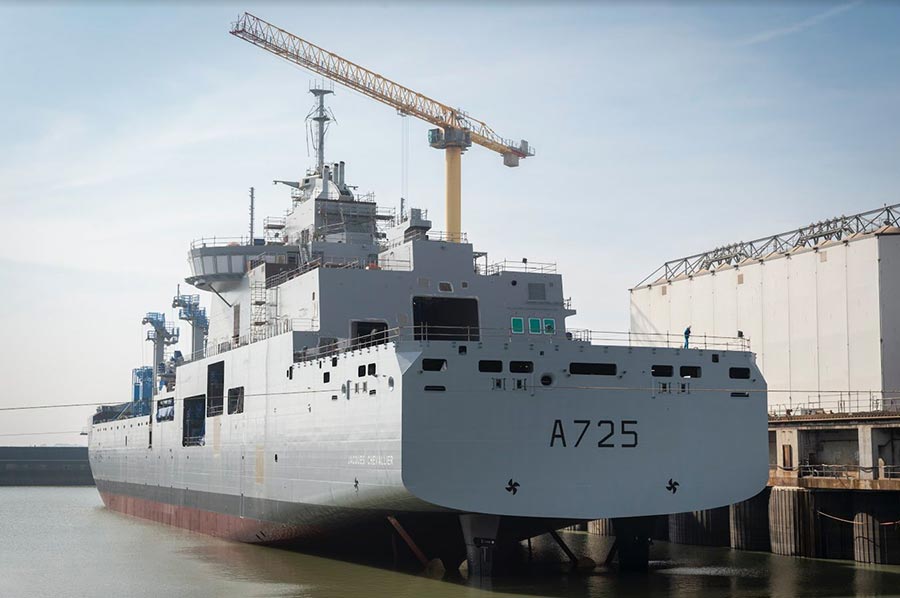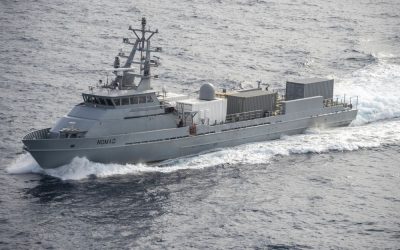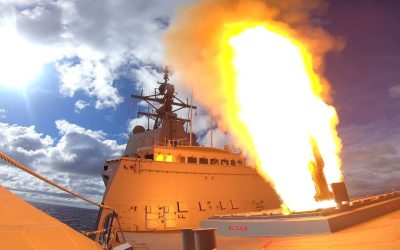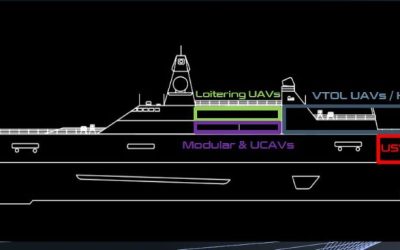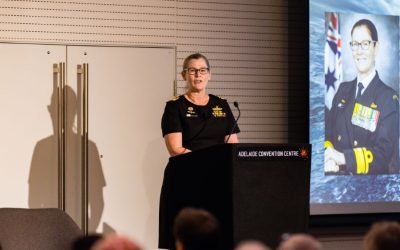In January 2023, the first of the Marine Nationale’s new logistic support ships, the Bâtiment Ravitailleur de Forces (BRF) Jacques Chevallier commenced sea trials.
Jacques Chevallier first went to sea in December 2022. Initial sea trials formally commenced on 25 January 2023, and were completed on 28 January 2023. The first-of-class is due to be accepted into service in mid-2023.
This first BRF was launched on 29 April 2022 and is the first of the four fleet replenishment vessels in the FLOTLOG programme. The vessels are being built by Chantiers de l’Atlantique under the terms of a contract awarded to Chantiers de l’Atlantique and Naval Group in 2019. All four vessels are due to be delivered by 2029.
Chantiers de l’Atlantique is responsible for the design and the construction of the four ships; Naval Group is responsible for the design, development and integration of the combat system and related systems. Fincantieri was contracted by Chantiers de l’ Atlantique to build the forward sections of the four BRF vessels. These are being constructed in the company’s Castellammare di Stabia (Naples) shipyard, with delivery to Chantiers de l’Atlantique scheduled between 2021 and 2027.
The BRFs – which will replace the French Navy’s Durance-class ships – will provide logistic support to combat vessels deployed as part of the naval air group or naval task group. With a capacity of 13,000m3, they carry fuel, ammunition, spare parts and food.
The new series of vessels will have self-defence capability in the form of Naval Group’s combat management system. They have a full load displacement of 31,000tonnes, length overall of 194m, breadth of 27.60m and accommodation for 190 people, including 130 crew members and 60 other personnel.
The new logistics vessels share a common design with one built for the Italian Navy. They were designed from the outset to support military operations and humanitarian aid/disaster relief (HA/DR) roles. In the former case, the ship will be capable of supporting a range of missions, ranging from the transport and transfer of fuel, water, lubricating oil, dry stores, spares, ammunition, and 20ft ISO containers to the provision of naval/joint force headquarters afloat facilities, and medical support (NATO Role 1/Role 2 LM). The design incorporates four abeam replenishment at sea (RAS) stations.
For HA/DR missions, the LSS can provide a range of capabilities, such as a hospital facility, the provision of electrical power and potable water to shore, and the delivery of modular accommodation/triage containers. A 30-tonne capacity crane is fitted to enable cargo handling.
